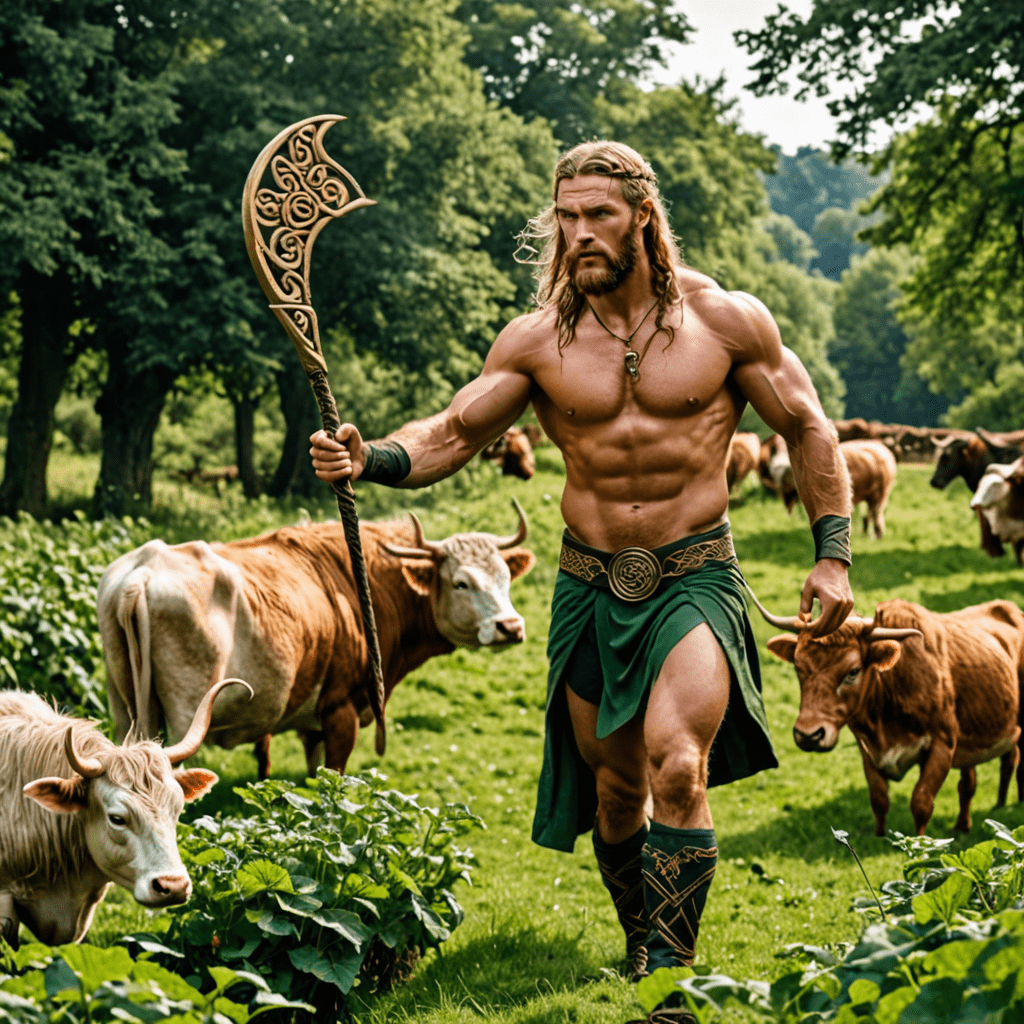The Connection Between Celtic Mythology and Agriculture
Celtic mythology, with its rich tapestry of gods, goddesses, and legends, holds a profound connection to the natural world, including agriculture. Let’s explore how the beliefs and stories of the Celts interwove with the cycles of planting, harvesting, and cultivating the land.
1. Celtic Deities and Agricultural Practices
In Celtic mythology, deities such as Cernunnos, the horned god of animals and fertility, and Demeter, associated with the harvest, played significant roles in agricultural practices. These gods and goddesses were revered for their power to influence the growth of crops, the fertility of livestock, and the overall prosperity of the land.
2. Festivals and Seasonal Celebrations
The Celts celebrated various festivals throughout the year that were closely tied to agricultural cycles. Lughnasadh, held in early August, honored the god Lugh and marked the beginning of the harvest season. Samhain, celebrated at the end of October, signified the end of the harvest and the beginning of winter preparations.
3. Mythological Stories and Agricultural Symbolism
Many Celtic myths and legends incorporate agricultural themes and symbols. The tale of the fertility goddess Brigid, associated with spring and the rejuvenation of the land, exemplifies the link between mythological narratives and the bounty of the earth. Stories of the Otherworld, a realm of abundant crops and eternal youth, resonate with the ancient Celtic reverence for nature’s abundant blessings.
4. Rituals and Offerings to Honor the Land
Celtic agricultural practices often involved rituals and offerings to honor the land and appease the deities associated with fertility and growth. Farmers would leave offerings of grain, milk, or mead to secure a bountiful harvest and ensure the well-being of their crops and livestock. These rituals reflected a deep spiritual connection to the earth and a belief in the reciprocity between humans and the natural world.
Frequently Asked Questions About The Connection Between Celtic Mythology and Agriculture
What role did agriculture play in Celtic mythology?
In Celtic mythology, agriculture was intertwined with the beliefs and practices of the ancient Celts. The success of crops, fertility of the land, and well-being of the community were often linked to deities and rituals associated with agriculture.
Which Celtic gods or goddesses were connected to agriculture?
Several Celtic deities were associated with agriculture, such as the Irish goddess Brigid, who was not only the goddess of poetry and smithing but also of fertility, healing, and agriculture. Cernunnos, the horned god of fertility and animals, was also connected to the land’s abundance.
How did Celtic mythology influence agricultural practices?
Celtic mythology influenced agricultural practices through rituals, offerings, and celebrations dedicated to the gods and goddesses of fertility and the harvest. These practices aimed to ensure successful crops, bountiful harvests, and the well-being of the community.
What are some key agricultural festivals in Celtic mythology?
Key agricultural festivals in Celtic mythology include Beltane, a celebration of fertility and the beginning of summer, and Lughnasadh, a harvest festival honoring the god Lugh. Samhain marked the end of the harvest season and the beginning of winter,



